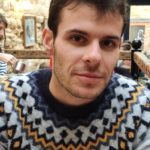Link to Pubmed [PMID] – 37084751
Link to DOI – 10.1016/S2666-5247(23)00005-8
Lancet Microbe 2023 Apr; ():
The incubation period of SARS-CoV-2 has been estimated for the known variants of concern. However, differences in study designs and settings make comparing variants difficult. We aimed to estimate the incubation period for each variant of concern compared with the historical strain within a unique and large study to identify individual factors and circumstances associated with its duration.In this case series analysis, we included participants (aged ≥18 years) of the ComCor case-control study in France who had a SARS-CoV-2 diagnosis between Oct 27, 2020, and Feb 4, 2022. Eligible participants were those who had the historical strain or a variant of concern during a single encounter with a known index case who was symptomatic and for whom the incubation period could be established, those who reported doing a reverse-transcription-PCR (RT-PCR) test, and those who were symptomatic by study completion. Sociodemographic and clinical characteristics, exposure information, circumstances of infection, and COVID-19 vaccination details were obtained via an online questionnaire, and variants were established through variant typing after RT-PCR testing or by matching the time that a positive test was reported with the predominance of a specific variant. We used multivariable linear regression to identify factors associated with the duration of the incubation period (defined as the number of days from contact with the index case to symptom onset).20 413 participants were eligible for inclusion in this study. Mean incubation period varied across variants: 4·96 days (95% CI 4·90-5·02) for alpha (B.1.1.7), 5·18 days (4·93-5·43) for beta (B.1.351) and gamma (P.1), 4·43 days (4·36-4·49) for delta (B.1.617.2), and 3·61 days (3·55-3·68) for omicron (B.1.1.529) compared with 4·61 days (4·56-4·66) for the historical strain. Participants with omicron had a shorter incubation period than participants with the historical strain (-0·9 days, 95% CI -1·0 to -0·7). The incubation period increased with age (participants aged ≥70 years had an incubation period 0·4 days [0·2 to 0·6] longer than participants aged 18-29 years), in female participants (by 0·1 days, 0·0 to 0·2), and in those who wore a mask during contact with the index case (by 0·2 days, 0·1 to 0·4), and was reduced in those for whom the index case was symptomatic (-0·1 days, -0·2 to -0·1). These data were robust to sensitivity analyses correcting for an over-reporting of incubation periods of 7 days.SARS-CoV-2 incubation period is notably reduced in omicron cases compared with all other variants of concern, in young people, after transmission from a symptomatic index case, after transmission to a maskless secondary case, and (to a lesser extent) in men. These findings can inform future COVID-19 contact-tracing strategies and modelling.Institut Pasteur, the French National Agency for AIDS Research-Emerging Infectious Diseases, Fondation de France, the INCEPTION project, and the Integrative Biology of Emerging Infectious Diseases project.








